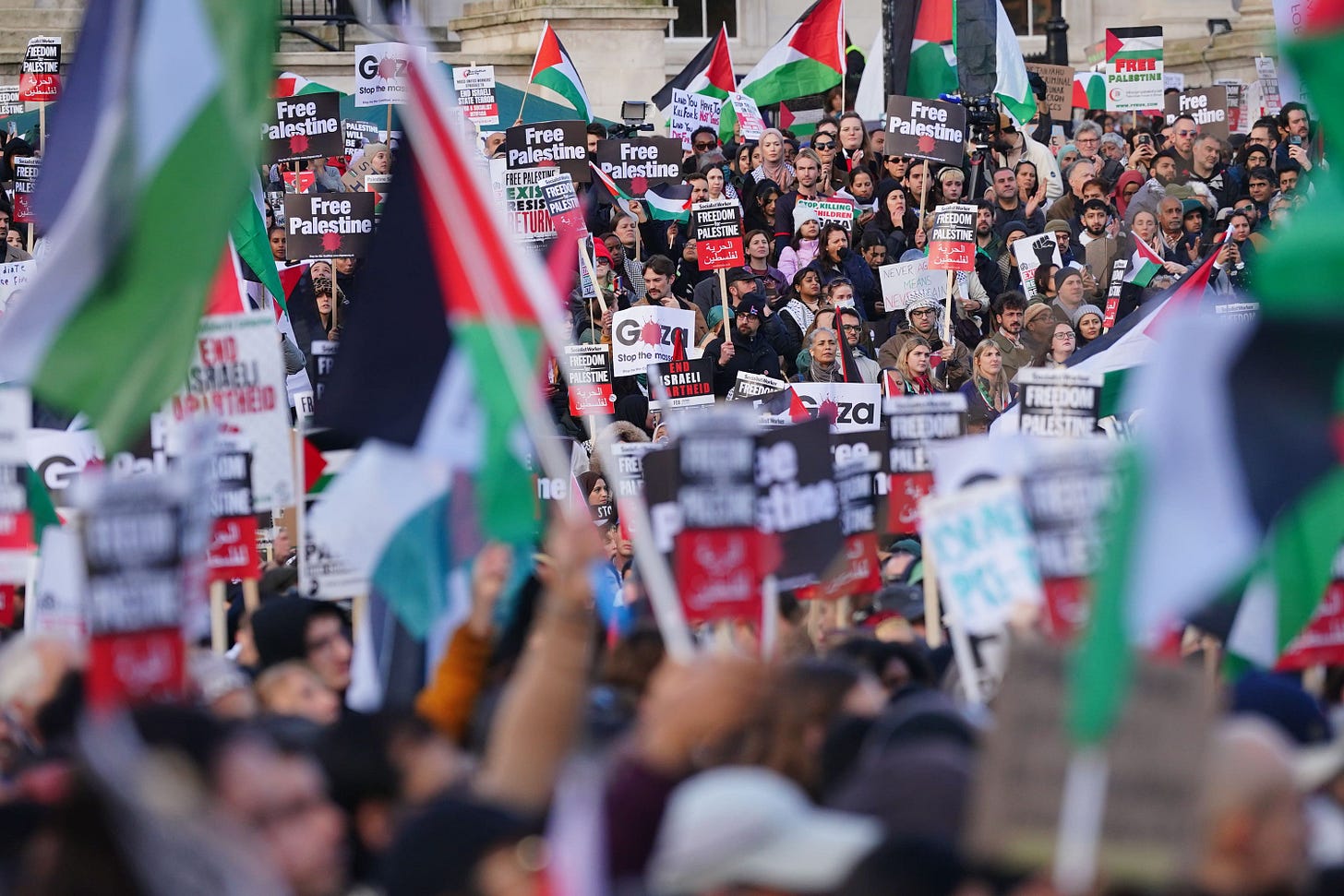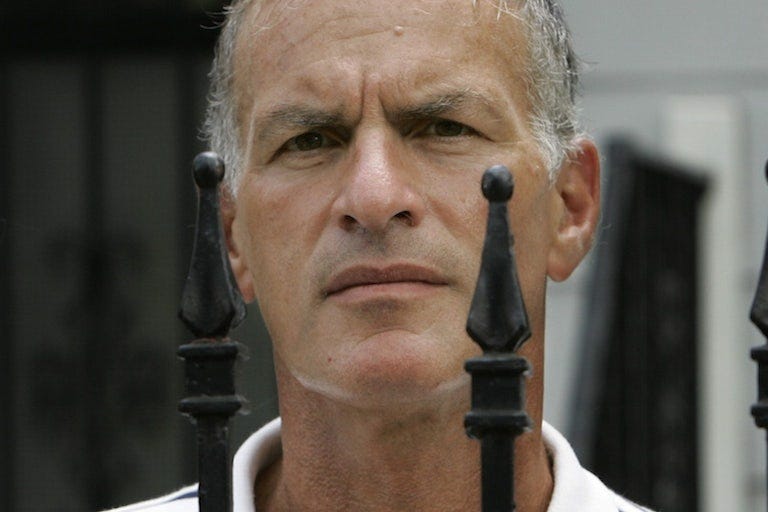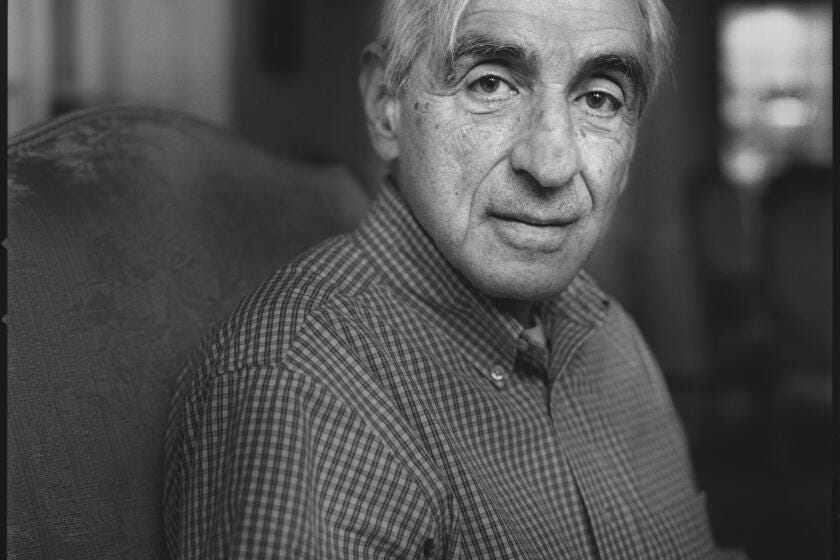A month has passed since the horrific attack by Hamas on Israeli soil. Two things have become clear now: 1) Hamas is a terrorist organization who will stop at nothing to see the state of Israel in ashes - not even murdering Israeli civilians and endangering Gazan lives, and 2) October 7th will have the same significance to Israeli historical memory as September 11th is to the Americans.
The wonderful British journalist Douglas Murray has said that Israel “is the only country in the world that gets criticized when its citizens are butchered.” And out of all 200+ nation-states, except for maybe Northern Cyprus, Israel seems to be the only one whose legitimacy is being scrutinized. But Northern Cyprus is a Turkish colonial project against the Greeks and Cypriots, and Israel is the culmination of thousands of years of Jewish longing for independence and statehood.
It is at this point that I should mention a profound connection between Israel and my people, the Vietnamese. Between 1977 and 1979, Israel became the first country to admit Vietnamese refugees fleeing communism, also known as the boat people. Menachem Begin was Prime Minister at the time, and he admitted approximately 366 Vietnamese souls who would rather risk death than living under Communist tyranny. Their lives, and the lives of their descendant, was saved thanks to this act of compassion and hospitality. In this act, Prime Minister Begin and the Israeli people have made true that profound Talmudic maxim “Whoever saves a single life is considered by scripture to have saved the whole world.” (Sanhedrin 37a)
My admiration for the state of Israel does not in any way impede upon my advocacy for a viable Palestinian state. Vietnamese national history is filled with stories of how our nation wrestled independence and self-rule from the auspices of colonial and imperial powers, from the various Chinese dynasties to the French empire to the American invaders. The dream of self-governing statehood is far from a post-World-War-I invention - it lies at the hearts and minds of every people who wishes to realize their national destiny, unimpeded by foreign rule.
Furthermore, Palestinians have every right to be aggrieved by the actions that Israel has taken over the decades. As revealed by eminent historians like Benny Morris, the creation of the state of Israel resulted in mass displacement of approximately 600000 - 700000 Arabs who’d established their livelihoods in the land. Palestinians living today, whether in the West Bank, Gaza or the diaspora, are reminded daily of their status as refugees. This is not to mention the ongoing occupation of Arab land since 1967, where West Bank residents and Gaza dwellers (until the 2005 Israeli disengagement) are forced to live under the rules and whims of a foreign entity. For this decades-long streak of humiliation to end, a Palestinian state must be created alongside the Jewish state. And I hope and pray that I get to see that happen in my lifetime.
But, in case I have not stated it explicitly: Hamas is not an example of Palestinian resistance. In fact, what Hamas have done since October 7th, as well as since its takeover of Gaza, may have set back the cause of Palestinian liberation for at least a generation. The Palestinian flag now signifies, at best, Western woke left moral blindness and, at worst, advocacy of terrorism. Whenever Israelis hear the phrase “Palestine shall be free”, they will associate it with the menacing second part, “From the River to the Sea”. Whenever anyone accuses Israel of committing genocide, I so wish to remind them of the actual genocidal intent made clear in that popular chant.
In the wake of this horrific development in the Middle East, the political scientist Norman Finkelstein equated the Hamas attacks with the Nat Turner slave revolt of 1831. Turner called upon his fellow rebels to “kill all the white people”, and among the 55 - 65 whites killed were women and children. The revolt was brutally suppressed, the rebels executed and mobbed, and it led to laws enacted to prohibit the education of slaves (for Turner was an educated preacher). Finkelstein thought otherwise: while acknowledging the brutal and indiscriminate killings of the rebels, he believes that Turner lit a fire that began the abolitionist movement in America, culminating in the Civil War and the Emancipation Proclamation. If Finkelstein was correct, then the movement to free the slaves did not begin with legitimate moral concerns for the oppressed, but with the shedding of innocent blood.
Finkelstein, who has been condemnatory of the state of Israel throughout his academic career, has failed to question the legitimacy of Hamas’ actions. For that, we have to turn to Michael Walzer, who recently did so in the pages of The Atlantic. He observed that the pro-Palestinian supporters, Finkelstein among them, believe that the oppressed - in this case the Palestinians - “can do no wrong. Any act of ‘resistance’ is justified, however cruel, however barbaric, however much these protesters would rage against it if it were committed by someone else.” Walzer refuses to co-sign this line of argument, for he believes that one’s status as the oppressed does not absolve him of his responsibility and obligation to his fellows:
Hamas should be making Gaza into a model of what a liberated Palestine would look like … And then it should be organizing on the West Bank to achieve a Palestinian state alongside Israel. It should be working with Israeli opponents of the occupation and with other Palestinian groups for that version of liberation—which is achievable short of war and revolution … It should be educating people for civil disobedience and planning marches, demonstrations, and general strikes. It should be working to strengthen Palestinian civil society and create the institutions of a future state… [Instead, it has] chosen terror as its means of struggle—not as a last resort but as a matter of policy from its beginning.
Walzer, who is an eminent scholar of the American Left, has maintained his views that the oppressed have responsibilities throughout his academic career. In his 1970 essay “The Obligations of Oppressed Minorities”, he calls terrorism not only “the weapon of the weak”, but also “a weapon against the weak, that is, against members of the majority as individual, isolated, helpless men.” He calls out intellectuals like Jean-Paul Sartre, who rationalizes and provides cover for violent acts done in the name of resistance: “The argument that the oppressed are right whatever they do has as its practical corollary the argument that they cannot be criticized whatever they do.” The intellectual’s responsibility, Walzer argues, is to understand the oppressed as well as the oppressors on their own terms: “When an intellectual writes about the oppression of others, he must imitate the Jews at the Passover Seder and imagine that he too was a slave in Egypt. When he writes about an oppressive government, however committed he may be against it, he must imagine that he too was an Egyptian.”
For now, if we adopt the Palestinians’ perspective that Israel is the oppressor and they the oppressed, what moral positions are we to take? In a recent conversation with a Palestinian in the wake of the war, I invoked Jesus’s invocation to turn the other cheek (“whosoever shall smite thee on thy right cheek, turn to him the other also” - Matthew 5: 39). He flatly responded: “The Palestinians have been turning the other cheek for 75 years, and they got nothing in return.” Not only is this position historically incorrect (think of the many terrorist acts committed against Israelis in the name of Palestinian liberation in the same period of time), it is also a profound misunderstanding of Christ’s teaching. For one, there is no time limit to turning the other cheek. Secondly, it is above all an invitation to peace. It is not a state of war when one side is responsible for all the aggression. Thirdly, it is the Palestinian leadership’s refusal to turn the other cheek that contributes to the sorry state which the people they claim to lead are living under. Of all the obstacles to peace, it is the PLO and Hamas’ stubborn refusal to acknowledge the legitimacy of the state of Israel that has put the peace process into its current state of comatose (For a detailed treatment of this position, I refer you to Einat Wilf and Adi Schwartz’s excellent volume The War of Return).
It is a profound mistake to think of violence as a necessary response to oppression, however brutal. Violence, like all actions taken by conscious subject, is a choice. The idea that the only way to stop oppression on its tracks is destructive violence shows a lack of moral and political clarity. We must conclude that Hamas, in committing all of its atrocities, is a false ally of the Palestinian people - its true allegiance is to terror and fear-mongering.






